Proposal to Tie Some Visas to Social Media Checks
Under the proposal certain visa-seekers (such as China and India) would have to have their social media presence scrutinized.
 Via the BBC: US may tie social media to visa applications.
Via the BBC: US may tie social media to visa applications.
The Trump administration has said it wants to start collecting the social media history of nearly everyone seeking a visa to enter the US.
The proposal, which comes from the state department, would require most visa applicants to give details of their Facebook and Twitter accounts.
They would have to disclose all social media identities used in the past five years.
About 14.7 million people a year would be affected by the proposals.
The information would be used to identify and vet those seeking both immigrant and non-immigrant visas.
Applicants would also be asked for five years of their telephone numbers, email addresses and travel history. They would be required to say if they had ever been deported from a country, or if any relatives had been involved in terrorist activity.
The proposal would not affect citizens from countries to which the US grants visa-free travel status – among them the UK, Canada, France and Germany. However, citizens from non-exempt countries like India, China and Mexico could be embroiled if they visit the US for work or a holiday.
Officials defended the proposal by saying it would help to identify potential extremists.
Two objections come to mind here.
1. Symbolism. Frequently when I see proposals like this, the phrase “land of the free, home of the brave” pops into my head because such proposals seem to undercut both sentiments. The land of free speech and open expression wants to scrutinize everything that entrants (from certain countries) have said before we grant them entry. I am not saying that such actions are never warranted, but I sincerely wonder whether they are necessary as blanket policy. Further, our ongoing self-inflicted wounds in regards to our international image as the home of liberal democracy are going to start adding up (if they haven’t already).
In regards to the “brave” part–many in the US seem more than willing to give up elements of what supposedly defines us as Americans out of nothing more than abject fear.
2. Efficacy. But, however, you say: we need to keep ourselves safe from terrorists. Ok, will this process accomplish this feat? I think not. First, the sheer number of records involved will make it easier for information to be overlooked, if even there is useful information to find. Also: where are the resources going to come from to vet all this information? Is the cost worth the benefit?
More significantly, if one is engaging in real terrorist activity, is one likely to give the US the phone numbers and Twitter accounts one uses for that activity? Will criminal actors hand over all their aliases because the US government asks? I am guessing not.
Really, this reminds me of any number of attempts at “keeping us safe from terrorists”–one terrorist tried a shoe bomb, we all have to take our shoes off, and so forth. Never mind whether that makes senses or not.
And I am not saying that the US government should ignore social media, rather, I am suggesting that blanket collection of a range of personal communication data from visitors is an inefficient, almost certainly ineffective process that will cost money, inconvenience travelers to the US, and further damage our international reputation. You know, a regular win-win-win.*
*So much winning.

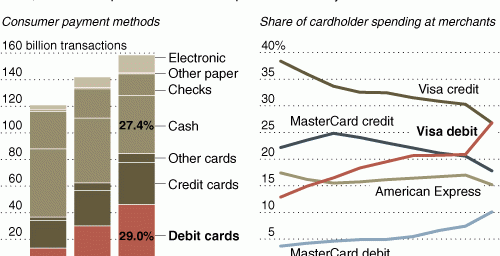
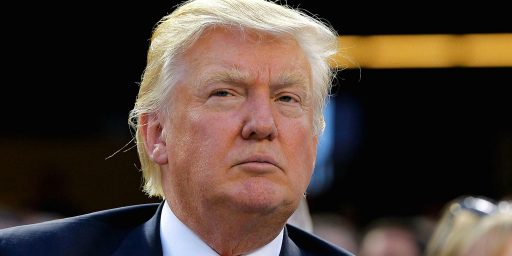
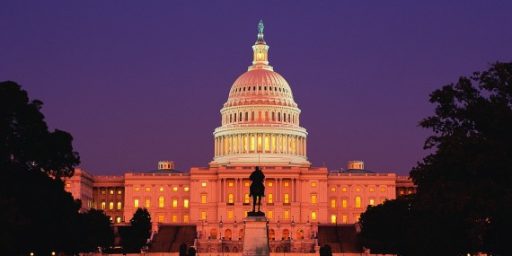
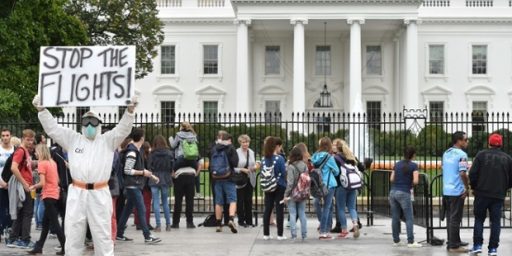
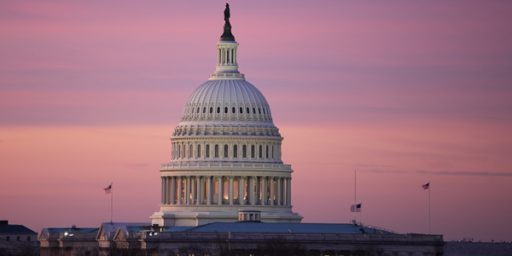
I have no problem with it but either do it for all visa applicants or none.
Of course, the flip side is the Obama administration’s policy to ignore people’s social media accounts.
I’m guessing there are some people in San Bernardino who don’t really care about inconvenience to travelers to the US.
Visa and Immigration checking are a huge hassle for tourists. Many tourists are indistinguishable from would-be illegal immigrants.
@Andre Kenji de Sousa: Getting a visa for Brazil is quite a hassle as well.
And the customs hassles when shipping freight there are among the worst in the world!
@TM01:
Yes, the fantastical assumption that the past could have easily been changed. Surely if we had asked every entrant into the country about their social media accounts that the attack in question would have been thwarted.
Do you have any evidence to this point, or just simplistic assumptions? I am quite weary of simplistic assumptions driving anti-terrorism policy.
Of course, someone will have to review the postings and then decide whether they represent a dangerous idea, sarcasm, irony, or just trolling. This momentous decision would be made by an instrument of the deep state since Trump is unable to appoint enough competent people to fill a softball team as shown by the turnover in his staff.
How about we give everybody a Voight-Kampff test at the border?
@Davebo:
That’s if you are American, because Brazilian law requires reciprocity. The same hassle that Brazilians have to get an American Visa is the hassle for Americans to get a Brazilian Visa. Europeans don’t need visas. People from the Mercosur and Portugal don’t need visas either.
I wouldn’t assume it is entirely useless.
People are stupid and careless. They do things that connect the accounts, which they don’t realize at the time. They carry the burner phone and the real phone around. They forget to use their VPN one day when hacking into the DNC emails and reveal they are in fact Russians in a Russian government building.
If we are scooping up all the data that Snowden says we are, then we could well have a large mapping of suspicious accounts and entangled innocuous accounts. If someone gives us one of those entangled innocuous accounts, we would then know that they are actually suspicious.
And a lack of information can be equally suspicious. 22 year old man who can afford to visit the US, but who doesn’t have any social media accounts? Possible, but unlikely.
And, a lot of this checking can be completely automated, assuming we are capturing all this data.
@Steven L. Taylor: I suppose you already know about the DHS the guidance that specifically excluded a social media check when deciding to issue a Visa.
And I’m certain you know about Jeh Johnson siding with DHS’s Office for Civil Rights and Civil Liberties over actual agents who were concerned that policy would jeopardize actual security. Because appearances, or Our Global Reputation, are what really matters.
What else do you want?
@Gustopher: and it’s shocking how many people will let a police officer search their car if he casually asks if it’s ok.
I’ve even fallen for that one. Realized it after the fact. “Damn. I just realized what he did there. Sneaky.” Of course, I wasn’t doing anything illegal either.
@Gustopher:
I strongly suspect the motivation is LE seeking a legal rational to toss people out, based on their ability to very quickly spot people faking and then lying about multiple accounts. It is not to keep people out, it’s to sort out the ones that are here.
It’s logical to assume there is a small percentage here now that our LE would love to chuck but lack a legal basis for doing so. I believe they call this a perjury trap. IOW, it’s not about the ability to gather information.
@TM01:
I want evidence, or at least an argument, based on more than just ex post facto thinking about a singular case. And, moreover, I want evidence that a massive, blanket policy of this type would be worth the effort and cost.
That really isn’t too much to ask.
does not appear highly valued by the Trump administration. Or even understood.
The proposal is not ridiculous on its face, but just how many terrorists are currently slipping into the country? When I see the government eager to climb ever further up people’s back sides, magnifying glass in hand, I just have to ask why. With all the money we pay to agencies such as the NSA, can’t we at least get a bit of help screening people? Given a name, finger print, email address and telephone number, the NSA could certainly give an immediate response on whether the person in question (suspect is a more apt description of how people are perceived by us for wanting to visit the country) seems suspicious.
But perhaps this leaves visitors with a tad too much self-respect. If they wish to enter the country, they should be ready to ape our culture of spinelessness in the face of authority, and of fear in the face of a shadow.
@TM01: *White dudes with guns kill more people in America than everybody else combined*. I think we should do Social Media Checks on all white dudes with guns or who want to buy guns. And NRA members? You’re all first.
**have no idea if this is true or not, just an example to demonstrate the absurdity, not to mention the constitutional pitfalls.
@OzarkHillbilly:
Aliens wanting to come here vs citizens. There IS a difference you know.
@Steven L. Taylor: well, I am glad that you at least aren’t opposed to all checking of social media as the previous adminstration was.
But your first argument against it is Symbolism, how it looks. You’re arguing that people not even in this country have Constitutional rights, which they don’t. You appear to be more worried about this than actual limiting of free speech by mob rule on college campuses. That concerns me a lot more. You talk about the home of liberal democracy dying, well look around. It’s already happening, but this policy certainly isn’t a part of that.
Why do we ask for ANY information on a visa application then? Won’t people just lie about their current address, the purpose of their visit, etc.? What’s the point of it all?
The govt already data mines social media and forum sites. I can’t imagine it would take that much more work to develop a front end interface to access that data by the DHS to search for specific usernames. They don’t need to deep dive every applicant. Just a cursory search looking for certain keywords would suffice for most, with a more detailed search when needed. The basic search should be relatively easy to automate as you have the username and password: login, search, report. (If you are worried about privacy once people are granted a visa, then just have a system in place that deletes that deletes the login information once the visa is issued.) How hard can that possibly be? I really don’t see too much effort or cost involved here.
And corporations are already creating jobs for guest workers in Canada, given the hassle of getting a work visa in the US. This will just accelerate that trend. Not to forget tourism and convention business.
@TM01:
You don’t see much effort and cost to process and verify the following? (from the story):
And, if you don’t think symbols and symbolism matters, you don’t understand politics or human beings.
And while it is not relevant to my post, actually non-citizens do have constitutional rights.
I’ve been to the States plenty, though I would like to visit San Francisco and Chicago. My bucket list of countries to visit is long though, and to be honest I don’t want to give up my basic right when I want to visit the US. Not because I am planning any bad actions, but because my likes and dislikes are my own. My sex-life, my diet, my health, my political leanings… all of this and more is obtainable through my social media. I don’t want to give up my financial info (which is already legal for the US to investigate if I book anything in the US by credit card), I’d like my private life to be private – and I am not a secretive person at all, I usually make all social media posts public because I hate the false illusion of privacy that most platforms give. But my personal conversations are private. Not because I plan anything nefarious, but because my personal conversations are supposed to be between me and the other person.
I last got a visa to the US in 2012. It takes several days. First you fill a very extensive online questionnaire, including questions like when you graduated high school, current and past addresses, current and past employers, etc.
Then you pay a non-refundable fee. Next you set an appointment to be photographed and finger-printed. After that you get an appointment for an interview. Then they keep your passport, and you pay a shipping fee. eventually you get your passport back, delivered at a courier service office (DHL back then), with the visa glued to one page.
The US used to issue permanent visas, but these were revoked in 2000.
@Steven L. Taylor: people not even in the country have Constitutional rights? Hmm.
@Kathy: wow. That’s a lot of information.
That must take a lot of resources to actually check up on. Why do we even bother? I don’t think the benefits of asking those questions outweigh the costs.
@TM01: That’s why we’re saying this is so brain-dead. It’s security kabuki theatre guaranteed to piss off people wanting to enter the country.
Plus, there’s the number of false positives that undoubtedly will show up if we ever bother to get around to checking all that stuff. Especially if you start looking at links-to-links and then links-to-links-to-links. And what about simple “oops” errors which then propagate? It’s easy to wag your finger and say “evil bad person! Should have double-checked everything!” It’s also not realistic.
End result? A hell of a lot of people who won’t even bother to try to come to the US. Result on tourism? Down. Result on US business? Down. Result on US competitiveness? Down.
Does Trump even think before he pulls these stunts?!
Speaking of stupid, here’s the latest on the expected whack to U.K. manufacturing from Brexit.
But I’m sure all those unemployed Brits will console themselves with their new “freedom” from the EU instead. Pity said “freedom” can’t be used to pay rent….
@TM01: “That must take a lot of resources to actually check up on. Why do we even bother? I don’t think the benefits of asking those questions outweigh the costs.”
Seriously? Ten minutes ago you were screaming about how awful anyone was who could question why the government would do a deep dive into social media — and whining about how the country is going to hell because college kids are mean to poor Ann Coulter — and now you’re saying that questions the government asked years ago on visa forms weren’t worth the cost of investigating.
Are you actually a goldfish?
Would a rule like this, if applied to Americans by another country mean that I would have to create and maintain a social media account to visit other countries? How would a country know I’m telling the truth when I said “I don’t have any social media accounts?”
@TM01: Most people probably will too, just so they can’t be detained for hours and then released. A lot of people would not mind, especially if it is a search for a kidnap victim.
I remember years ago a state patrol officer threatened to search our work van, which was piled high with tools, heavy pipe, and supplies. The person I was helping told him if we take all that out, he has to put it back in. He let us go on.
Pulling a work van over? Really?